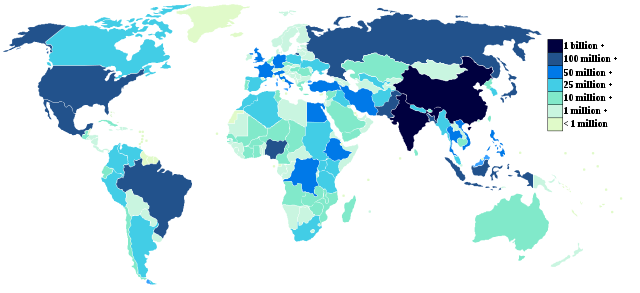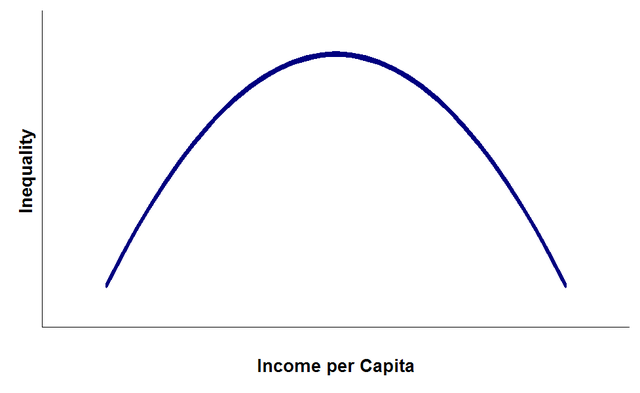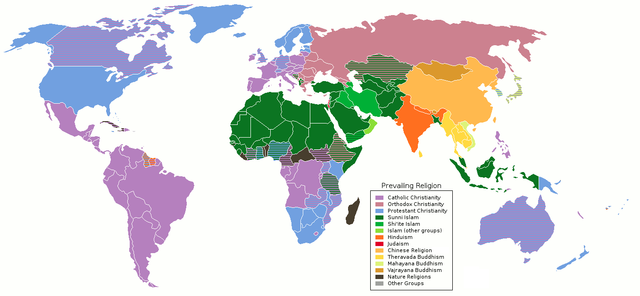 People v. consumption: Hamedog via Wikimedia CommonsA new paper in the journal Nature Climate Change assesses which human factors are the most important drivers of greenhouse gas emissions.
People v. consumption: Hamedog via Wikimedia CommonsA new paper in the journal Nature Climate Change assesses which human factors are the most important drivers of greenhouse gas emissions.
The authors note know that for every 1 percent increase in human population, greenhouse gas emissions go up by slightly more than 1 percent. But which aspects of human life contribute most—more people, more consumption, or both—and how might that play out in a world racing towards 10 billion people this century? (I wrote at length about this concern in Mother Jones‘ The Last Taboo.)
The biggest question is whether or not affluence will ever mitigate its own consumption. The authors write:
Ultimately, most releases of greenhouse gases are driven by consumption of goods and services by individuals, households and organizations, and the manufacturing, transport and waste disposal that underpins that consumption… It is possible that the composition of consumption might shift from current patterns to more benign ones, as might the technologies supporting manufacturing, transport and waste disposal. Indeed, many policies seek to encourage such changes.
 Population by nation: WikipediaFrom the paper, important factors affecting greenhouse gas emissions:
Population by nation: WikipediaFrom the paper, important factors affecting greenhouse gas emissions:
- The number of households seems to be more important than numbers of people.
- The age structure of a population may be more important than its overall size—particularly the fraction of the population in the age groups most generally considered economically active, typically ages 15 to 65.
- Rapid population growth may be worse than overall population growth, since it’s likely to strain the institutions that might make population growth more environmentally benign.
 Hypothetical Kuznets curve: Princess Tiswas via Wikimedia Commons
Hypothetical Kuznets curve: Princess Tiswas via Wikimedia Commons
More in the numbers-versus-consumption debate:
- Affluence can both increase and decease emissions—increase through overall consumption, decrease by policies that seek to mitigate environmental damage to the environment—though it’s not clear if decreases ever outweighs increases.
- The argument by some scholars that affluence beyond a certain threshold—known as the environmental Kuznets curve (above)—leads to declining stress on the environment does not appear to hold true for greenhouse-gas emissions.
- Cities generate substantial demand for goods and services that induce emissions in distant places—a process called “metabolic rift“—which therefore may not truly reduce their emissions, as some studies suggest.
- The effects of global trade on greenhouse-gas emissions are nuanced—some environmental policies may be imported alongside transnational business, yet emissions are transferred from the rich world to the poor too.
- Forms of governance (democratic versus non-democratic) are not significant predictors of greenhouse-gas emissions.
 Prevailing world religions: Wikimedia Commons
Prevailing world religions: Wikimedia Commons
Interesting assumptions that lack adequate data to either confirm or dispute, including:
- Women’s political empowerment leads to amelioration of greenhouse-gas emissions (not clear from data).
- High levels of militarization are antithetical to environmental protection (some data suggest yes).
- Different world religions differ in their regard for the environment, which influences greenhouse gas emissions (unsure).
- Nations with strong environmental movements adopt public policies and private practices that actually reduce emissions (uncertain).
The authors conclude:
Concern with the magnitude of population and economic growth has led to renewed calls to slow population growth as well as to questions about the relationship between affluence and societal health and well-being. However, in a time of global recession with intensified demands for economic growth, and with waxing concern about how elderly populations can be supported in low-fertility nations that have a high dependency ratio, such reconceptualizations of basic societal goals face a struggle. Nonetheless, it is clear that reducing emissions of greenhouse gases in the face of scale growth will not occur in the context of the institutional, political and cultural forces that have prevailed so far.
The paper:
- Eugene A. Rosa & Thomas Dietz. Human drivers of national greenhouse-gas emissions. Nature Climate Change. doi:10.1038/nclimate1506















